Approach & Framework
Curriculum
Fern Green Primary School adopts the 2013 Mathematics syllabus which reflects the recent developments and trends in mathematics education. Our emphasis is predominantly focussed on conceptual understanding, skill proficiencies and mathematical processes which are integral elements to the development of mathematical problem-solving strategies. Students will also be nurtured to think logically, abstractly, critically, creatively and attained outcomes that seek to address the 21st Century Competencies Framework as defined by the MOE.
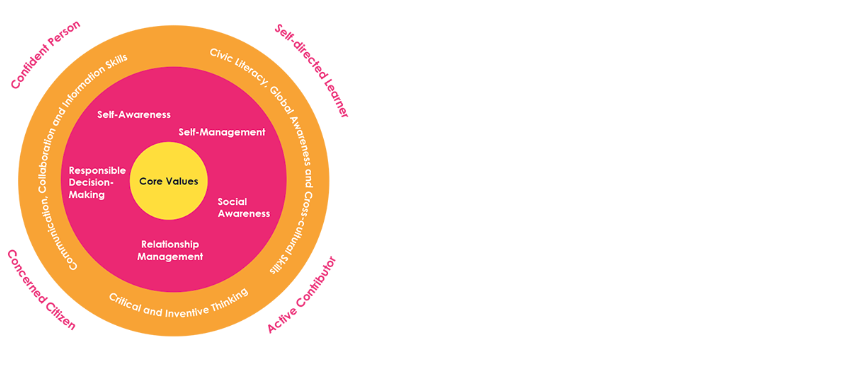
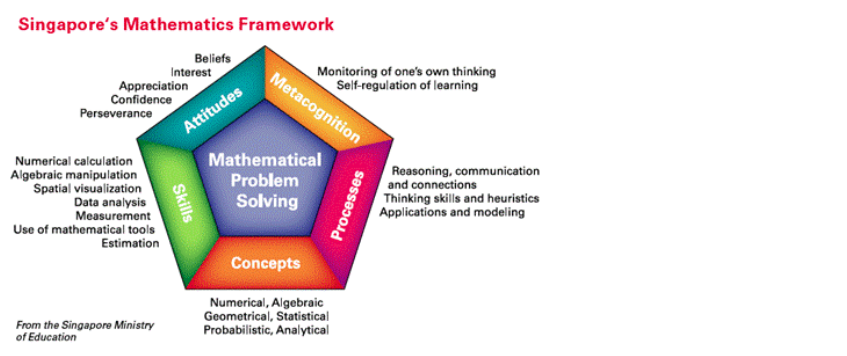
Goals & Objectives
-
To nurture all students to be creative thinkers, self-directed, independent learners and innovative problem solvers by enriching them with mathematics content, knowledge and skills.
-
To ensure that all students participate actively in all mathematics activities so that they will be able to develop their content knowledge and be able apply to this at higher levels.
-
To enhance and realise the potential of all staff by establishing a continuous cycle of relevant structured training and developmental programmes so that all students will enjoy learning mathematics by utilising up-to-date teaching methodology and practices.

Problem-based Learning & Learning by Doing for Math @ Fern Green
We believe that students learn best through active participation in mathematical discourse and collaboration with their peers. Therefore, we have specially designed a series of enriching learning experiences through our problem-based learning (PBL) packages, where students are able to make sound decisions and practise responsible decision making. In FGPS, we tap on problem-based learning as an inquiry approach whereby students have to think and work in pairs or groups to solve a rich and realistic everyday problem.
We use effective questioning to develop active mathematical communication skills and deepen learning in our students. This can promote logical and systematic thinking and allow the students to make closer connection of mathematics with real life. In our PBL lessons, students were tasked to use real life objects to act it out to find the best possible or most effective solution to their given tasks.
Learning by doing is immensely advantageous in mastering mathematics. When students actively engage with problems, apply concepts practically, and use physical or virtual manipulatives, abstract mathematical ideas become tangible and comprehensible. This concrete-pictorial-abstract (CPA) approach fosters deeper understanding, critical thinking, and problem-solving skills, ensuring that mathematical principles are not just memorized but internalized for real-world applications.
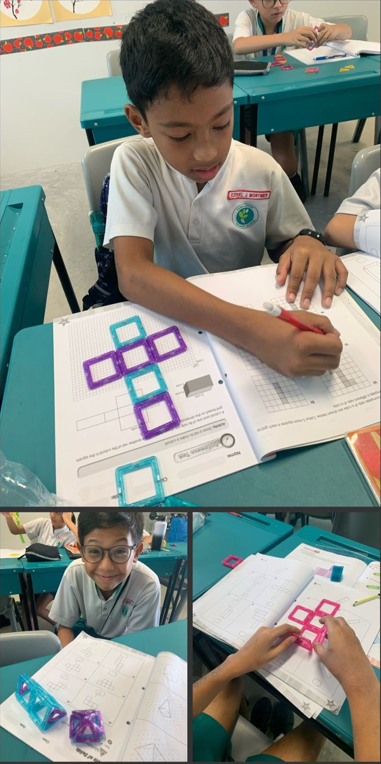
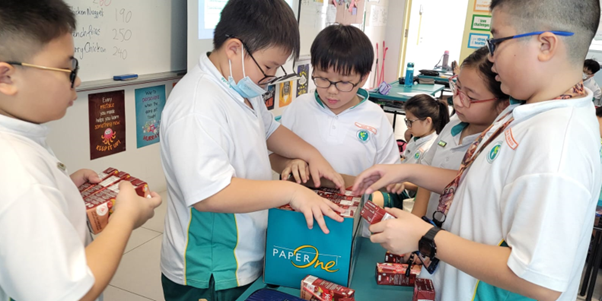
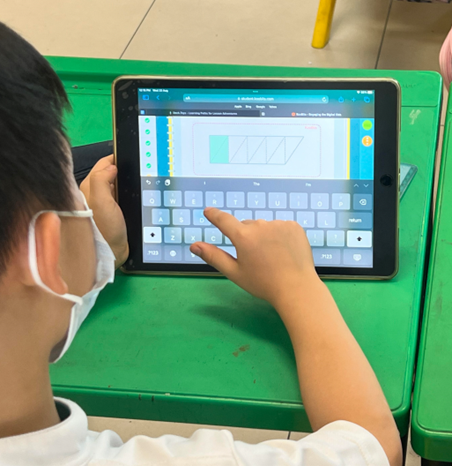
|

|

